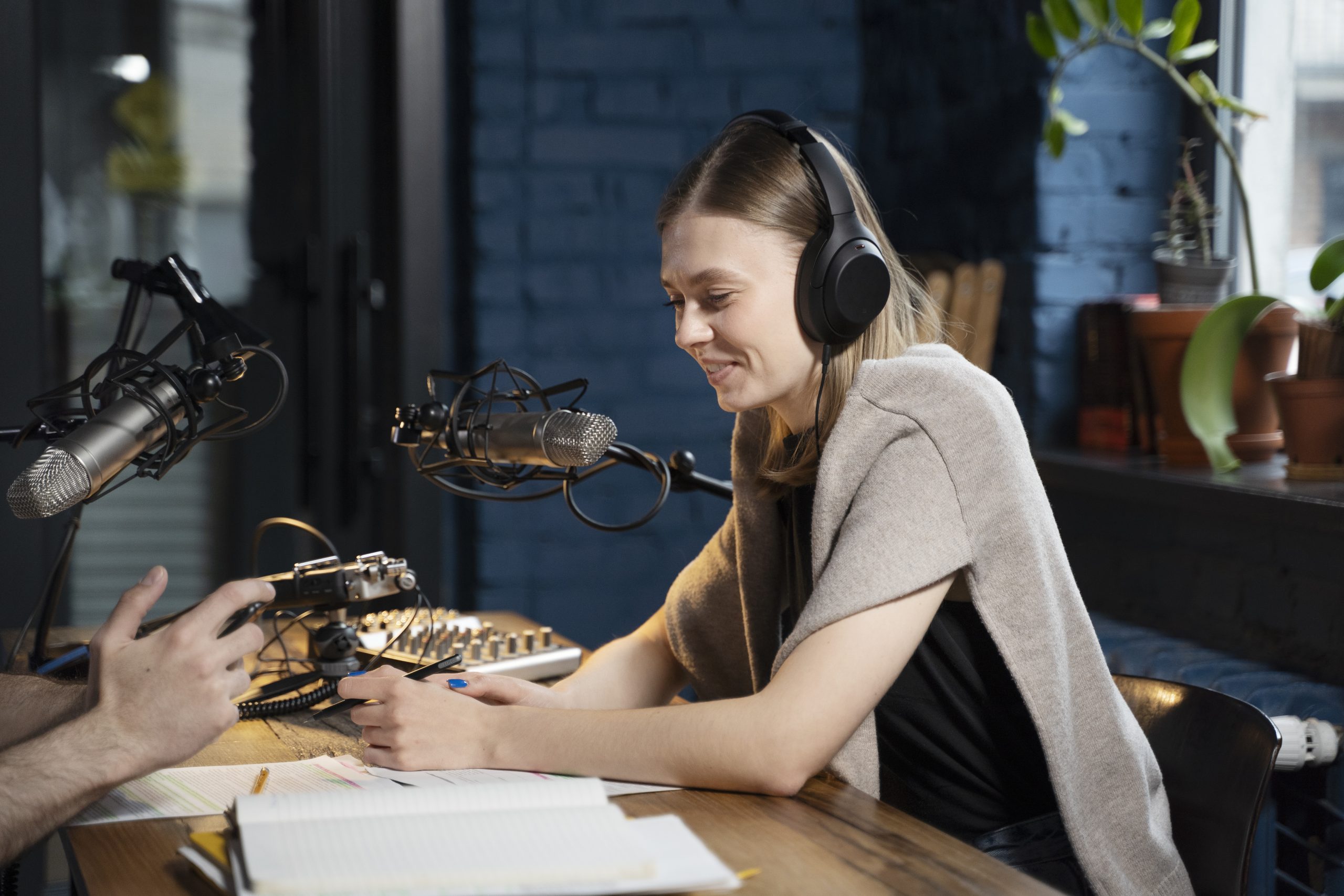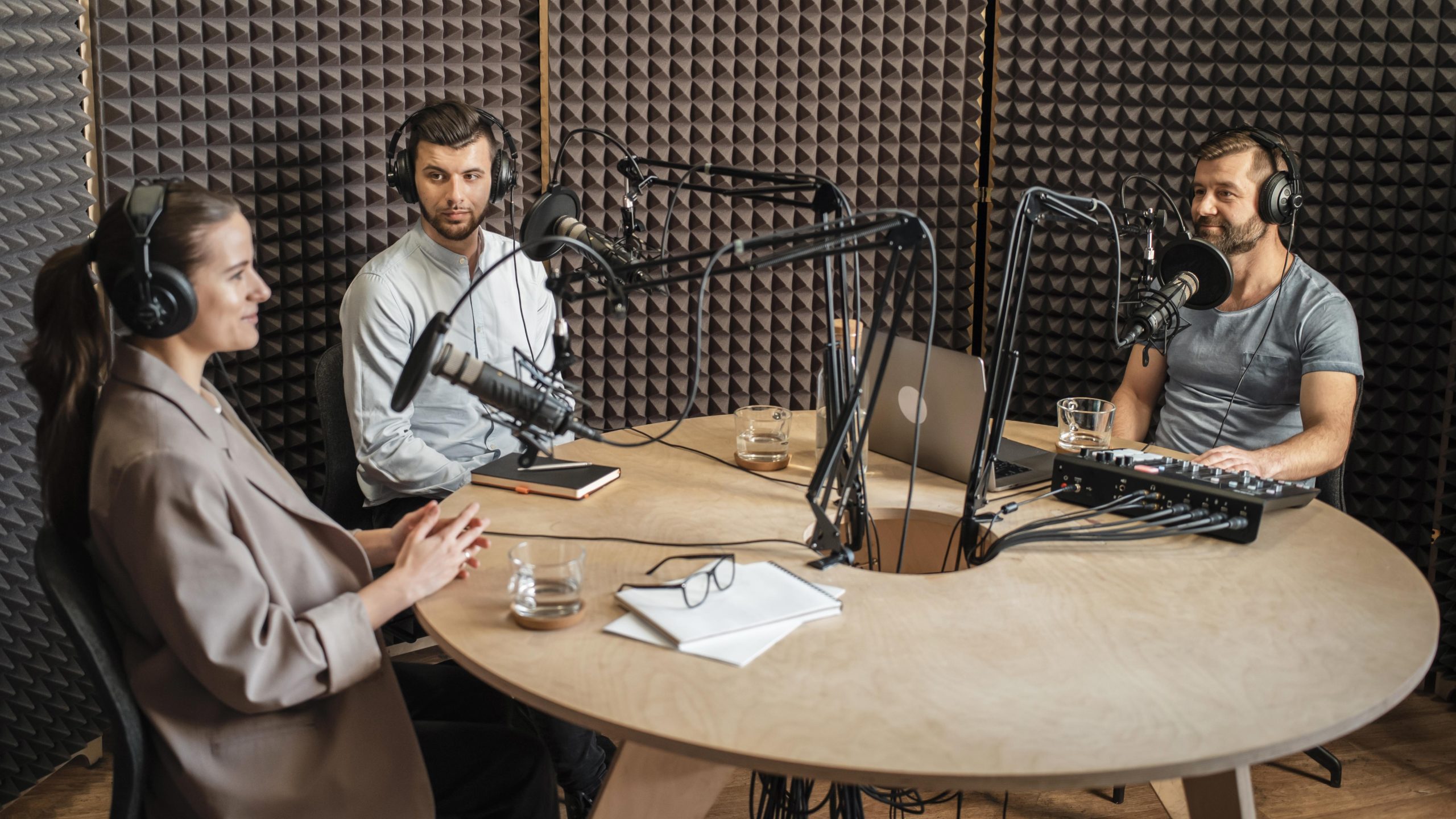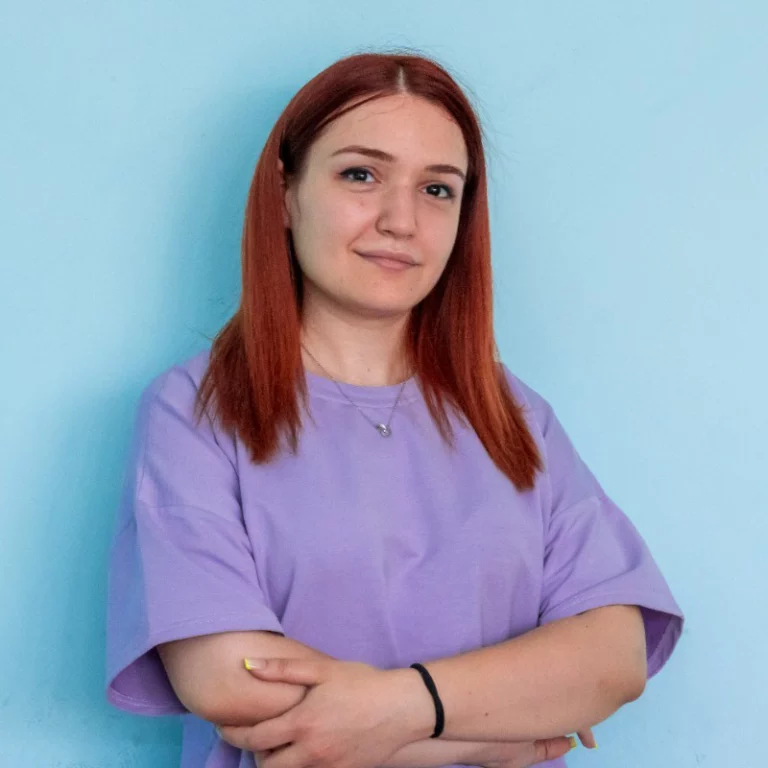How to Choose a Podcast Format for Your Show
- Diana Aghumyan
- April 28, 2023
- 10 min read
Podcast content is becoming extremely popular. Based on the latest study, there are 383.7 million people listening to podcasts globally. However, you need to choose a specific podcast format to get started. With podcast formats, you can easily organize your show’s content. They are delivery means that give your podcast a clear structure. If you choose the right format, it will help you keep your content more organized and accessible to your audience. Without the right format, your podcasts will seem messy.
Besides, podcast formats enable you to provide your listeners with consistency. When you stick to a particular format, your audience will know what to expect from your show every time they tune in. If your show features a serious panel podcast one week, a monologue on a complex topic the next, and a non-fictional story the week after, it will be hard for you to hold on to your listeners.
Additionally, a good podcast format will enable your audience to describe your show to their friends or relatives. They can say, “It’s two women drinking coffee and reviewing the latest Marvel movies,” or “It’s a five-episode story about a historic castle in Germany.” This is an example of word-of-mouth marketing which is crucial to the success of your podcast show.
Most importantly, choosing a single podcast format will ease your life. It’s much easier to plan content in advance when you know how you’ll shape it for each podcast episode.
For instance, if you choose an interview format for your show, you will be able to reach out to your guests and schedule them beforehand. It is enough time for you to find relevant people and prepare for the interview. Or, if you decide to make monologue podcasts on complex topics, you will be able to dedicate enough time to do proper research and prepare for the show.
Best Podcast Format: Which One is Right for You?
Before you pick a format for your podcast show, it is recommended to find out what everyone else is doing. While you don’t have to do the same things as other podcasters, there are some great reasons that podcasters decide to use certain types of podcasts. Each has its own advantages and disadvantages. Below are some common podcast formats you should consider trying.
1. Interviews
The interview podcast style is certainly one of the first that comes to mind when you think of a podcast.
It is a popular podcast format. There is a regular presenter or a few hosts interviewing a new podcast guest every week. While the guests and themes vary, there is always a common thing that connects them.
Pros of Interviews
- The conversations run more smoothly, so there is no need to invest a lot of time in editing your podcasts.
- There won’t be scarcity in topics, as every guest brings their own views on your niche.
- Your guests can share the podcasts, which allows you to expand your audience.
- If you start feeling comfortable with this format, consider extending it to a panel interview where you have a conversation with more than two people.
Cons of Interviews
- This is a highly famous format, so it will be challenging to stand out.
- One should have enough patience and practice for doing interviews.
- It takes a lot of time to find relevant guests.
- If you are planning to interview someone via Zoom or other video conferencing software, for instance, you highly depend on your internet connection.
- You have to do proper research on your guests before inviting them to your show.
- At some point, you are dependent on your guest’s ability to entertain and deliver valuable information. Your show will fail if they’re boring, shy, or cannot express themselves well.
2. Solo Podcasts
This podcast format is extremely popular. People who want to share their expertise can use this format to share their knowledge. All you need to do is talk to a microphone. Many people who have just started their podcasting career use this format because it’s so easy to implement. To get started, you need to invest in a good mic as well as recording and editing software.
If you pick this podcast format, you need to choose the length for each episode. Some people are comfortable talking for hours, but other podcasters might find it difficult to talk for 30 minutes. In that case, it would be great to write a script for each episode.
Pros of Solo Podcasts
- There is no need to count on someone’s assistance. You can schedule everything the way you want.
- Solo podcasts are perfect for building your personal brand.
- It is much easier to edit one voice than a few tracks
- If you don’t like how you pronounced a certain word, you can simply pronounce it again and cut out the bad parts.

Cons of Solo Podcasts
- You have to talk a lot. Talking for 30 to 40 minutes can be exhausting. And that’s only if you manage to record perfect material from the first time. In fact, you are going to end up talking for an hour or more for each podcast episode.
- There is no one to share your ideas with.
- If you’re not comfortable with talking to a microphone, you might need to practice before recording your podcast.
3. Conversational Podcasts
Conversational podcasts are one of the most popular types of podcasts. It typically involves two people talking to each other and having good chemistry together. However, unlike an interview podcast format, both speakers are hosts. In most cases, each host will play a particular role in the conversation.
Pros of Conversational Podcasts
- You’re only responsible only for yourself.
- If the hosts create a fun atmosphere, fans will feel more connected to the show as if they are part of a group.
- It’s simpler to listen to natural conversations.
Cons of Conversational Podcasts
- You both need to make sure you are on the right track. You might have conflicts if you neglect the message of your podcast.
- It’s difficult to edit two voices.
- You have to choose a subject you both are knowledgeable about.
- Since this podcast format assumes more conversation, you cannot rely on a script.
4. Panel Podcasts
A panel podcast is similar to an interview podcast, but it involves more people. Every episode has one host and a few guests.

Pros of Panel Podcasts
- Listeners can hear interesting opinions and insights during each episode.
- There’s almost no pressure on the host, as the guests can easily lead the conversation. A host can ask a few questions, and guests can take care of the rest talking.
Cons of Panel Podcasts
- It can be challenging to invite a few guests. Everyone’s schedule is different. So, it can be hard to choose a day and time that works for everyone.
- You need to make sure that everyone is involved and that someone is not talking non-stop while others are silent.
- If your guests have so much to say, you need to learn when to cut people off and how to move on smoothly in a way they do not get offended.
5. Fictional Storytelling
This podcast format assumes telling fictional podcasts told across several episodes. Some stories can be narrated by a single voice, while others use several voice actors, multiple sound effects, and other audio elements.
This format is great, especially for creative people. For instance, fiction writers who have interesting stories can record them and convert them into podcast episodes.
Pros of Fictional Storytelling
- This is not a very famous podcast format. Thus there’s little competition between other podcasts.
- You don’t have to worry about factual accuracy since you can make up stories.
Cons of Fictional Storytelling
- It is not a usual format, so it will take time and effort to create a loyal fanbase.
- As episodes are related to each other, you have to think about the whole season in advance.
- Fictional podcasts are not suitable for people who are not creative.
6. Non-Fictional Storytelling
Non-fictional stories are podcast episodes based on true events. For instance, you can report the news.
Pros of Non-Fictional Storytelling
- This podcast format is preferred by people who are eager to learn more about a particular topic.
- You have multiple options to choose from when it comes to topics for non-fictional storytelling.
Cons of Non-Fictional Storytelling
- It’s difficult to stick to a consistent schedule for content publishing because it can take longer to produce some episodes than others.
- This format is time-consuming and requires a lot of effort.
- If you don’t have a team supporting you, it can be difficult to publish podcasts in this format.
Conclusion
Choosing the best podcast format for your show is a critical decision that should be made based on your content, competitors, and you as a producer or presenter. What works for one podcast may not work for another. We can’t tell you which option is ideal for your event; it is entirely up to you.
So, please, do your research to figure out what will work best for you. Start with the easiest option. If you feel like you have enough experience and knowledge to try a more difficult podcast format, then go ahead.
Thanks for reading, and good luck!

SEO Content Writer
Diana Aghumyan
Diana is an experienced creative SEO content writer at SayNine. She is passionate about writing and giving value to people with her articles. Her blogs revolve around advertising, digital marketing, and other similar topics.
